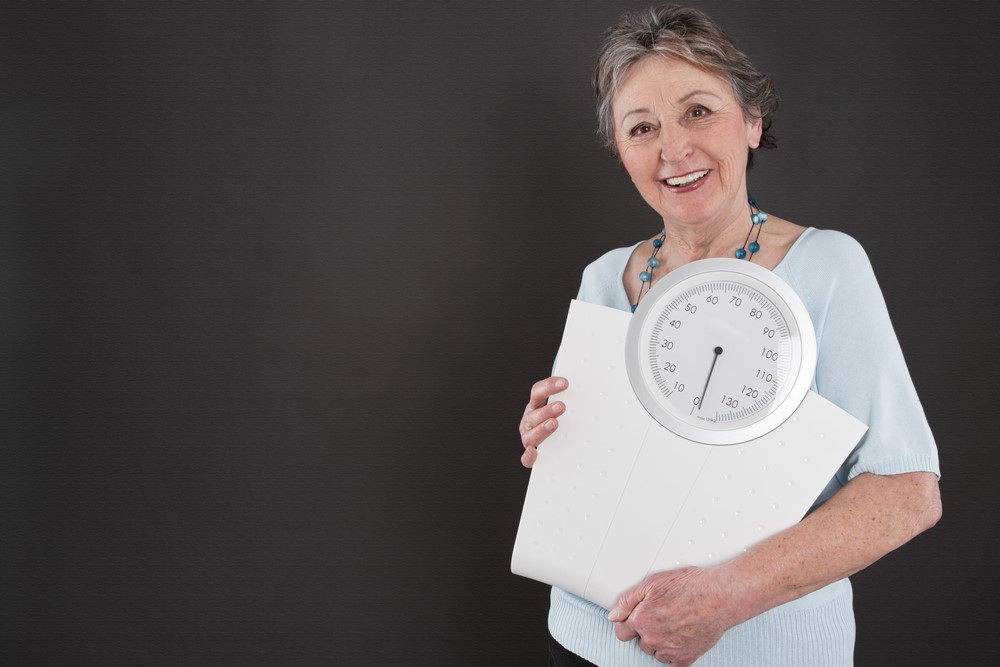
*This post includes a sponsored link.
In this day and age, where information is super accessible, we need to filter out what’s real and not. Many facts out there aren’t genuine and are just myths that people have believed for ages. All of it must be challenged and invalidated, particularly those that concern health mostly about weight loss.
After all, being at a healthy weight is important to people of all age groups, including seniors.
It’s common knowledge that losing weight is one of the hurdles one must overcome to stay fit. Many tend to believe in “rules” and diet fads that aren’t even science-based at all. They waste a ton of time with things that couldn’t help them shed body mass in the first place, which makes it more frustrating than it can be.
Seniors can also face additional weight loss challenges, like if their lifestyle has dramatically changed following retirement, if they are on new medication, or if moving around has become more difficult. Thankfully, weight loss is still possible, regardless of your age.
Reducing your excess weight won’t be as challenging if you know that you’re doing it right. Give yourself the confidence to do it by gaining an understanding of facts and misinformation. This article can help you by debunking common misconceptions about weight loss.
Misconception #1: Weight loss programs are a one-size-fits-all solution
Weight loss programs are effective, especially if you follow them well. But, thinking that they’re the perfect solution for losing weight is wrong. You have to consider certain factors when it comes to determining the best weight loss program for you.
You have to think about your age and your overall health before undergoing any weight loss programs. Those things involve planning what you eat and the physical activities you have to engage in. If you have food allergies, there’ll be limitations on your diet. Other health conditions may also suggest limiting the use of weight loss facilities that may aggravate your condition.
For example, some seniors need to watch their sodium intake, while others may need to keep cholesterol or fat levels in check. Such restrictions will influence the best type of weight loss program.
Plus, some weight loss programs are healthier than others. You don’t want a program that starves you or puts you at risk of nutritional deficiencies. Such approaches aren’t healthy in the long term.
You should also watch out for weight loss programs that are extreme or ultra-restrictive. Such approaches can be difficult to stick to – and a diet that you can’t stick with isn’t much use at all.
Finally, you should always consult a physician regarding taking up a weight loss program. They can recommend what’s best for you because they studied these kinds of matters.
Misconception #2: Eating less will help in losing weight long-term
You need to burn calories more than you take in to reduce your weight, so theoretically, eating less helps weight loss. Although it may help, it’s not the best solution in the long run, especially if you have serious weight problems. Counting your caloric intake can only do so much, and what you eat matters more.
In an extensive study that researched diet and lifestyle changes and long-term weight gain, foods such as sugar-sweetened drinks and potato chips were associated with gaining weight in the long run. It means that it isn’t just about how much you eat; you should also consider what you’re eating. Focus on quality and not only quantity in terms of your nutrition.
The DASH diet and Mediterranean diet are two commonly recommended eating approaches. They both focus on whole foods and nutrition, so you know that you’re getting high-quality ingredients in your diet – including options like dark leafy greens.
These diets work well for any age group including seniors, as there is plenty of room for adaptation.
You can also turn to other options, like protein shakes. Boost and Ensure are two popular brands. Each has a selection of products to choose from.
Misconception #3: The process of weight loss is linear
Losing weight is generally not linear. This is because your body weight can fluctuate, and that’s completely normal. Other days or weeks you’re losing weight while during other times you’re not.
It could be because you’re carrying too much water weight or holding food in your digestive system. With women, water weight fluctuates more during the menstrual cycle. Again, it’s normal and not a cause for concern. As long as your weight is continuously going down, your weight loss will be sustained regardless of the fluctuations.
Don’t forget that your weight can be influenced by a variety of factors.
Aging, for example, may slow down your metabolism, making weight loss more difficult. Age-related health conditions and loss of muscle mass can decrease mobility, which leads to less exercise and influences weight.
Menopause is another age-related factor that might influence your weight.
Then there are external influences, like stress, lack of time, and lack of sleep. These issues can all make it more difficult to eat well. You might end up binge eating more often or eating highly processed meals because you are short on time and energy.
Caregivers often struggle here. Yet, cooking well for yourself is crucial, as you need energy to provide care.
Misconception #4: Fat alone makes you fat

Fat does contain calories, around 9 calories per gram, to be accurate, which does make fat calorie-dense. However, fat alone doesn’t cause weight gain. Instead, whether you gain or lose weight is more strongly connected with your overall calorie intake.
As long as you keep your calorie intake in the healthy range, fat alone won’t make you fat. In fact, numerous studies found diets high in fat but low in carbohydrates contribute to weight loss. It’s also a fact that not all food labeled as ‘low-fat’ are healthier choices; other ingredients such as sugar can increase your calorie intake.
Misconception #5: Thin people are healthier than obese people
Being obese does have its health risks, but it’s not true that being thin is better. Not all obese people are unhealthy. Many of them are metabolically healthy, which means they have a body mass index (BMI) of 30 and don’t have metabolic syndromes such as type 2 diabetes and high blood pressure.
So although you may be on the heavier side of the weighing scale, it doesn’t mean that you’re unhealthy. Thin people can be lighter, but they can also have the same metabolic syndromes mentioned previously. However, you still have to exercise regularly and maintain a healthy diet to prevent compromising your metabolic health.
Resistance exercise can be particularly important, as this helps you to build muscle, which has notable effects on your metabolic health. Doing so can be particularly important as you age, as age-related muscle loss can be significant.
Misconception #6: Breakfast has significant effects on weight loss
Some people say that skipping breakfast helps you to lose weight. Others claim that breakfast is essential for weight loss. Then there’s all the research suggesting that one type of breakfast is better than another.
The topic can get overwhelming fast.
There’s also a belief that says eating breakfast boosts your metabolism, and eating smaller meals following it makes you burn more calories throughout the day. That kind of meal frequency doesn’t contribute to weight loss at all.
One of the most important things is that the effect of eating breakfast or skipping it depends on the individual. Pay attention to how your body responds to your breakfast (or lack thereof). You might be someone who thrives on skipping breakfast and fasting until lunch. Some people do. Or, perhaps you’re someone who needs a protein-rich breakfast to start the day off.
Misconception #7: Snacking will impede your weight loss

Eating snacks when on a weight loss journey may or may not slow down your progress. It’s actually more complex than you think based on science. It’s more about what you snack on, when, and why, rather than the act of snacking that matters.
Some studies have shown that obese people tend to snack more than people who aren’t. If that’s the case, it may be better to have healthier snack options in hand. However, being obese doesn’t necessarily mean that they’ll always eat frequently than others.
Overall, different people have varying eating tendencies. Your eating frequency may or may not play an essential role in maintaining the weight loss you achieved.
For example, some people eat small meals and have healthy snacks throughout the day. Doing so keeps their blood sugar stable and means that they don’t crave junk food. Other people eat larger meals and avoid snacks.
Neither approach is right or wrong. However, if you have a higher eating frequency, you should choose healthier snacks while on a diet for the sake of keeping yourself on track.
Misconception #8: Diet foods can help in losing weight
Diet foods are any food or beverage with an altered recipe to reduce fat, carbohydrates, or sugar. These foods are intended to aid in weight loss and are available for public consumption. They’re believed to be effective, but in reality, that’s not always the case.
There are diet foods that are actually junk food in disguise. Manufacturers market them as healthy when in reality, they contain heavily processed stuff. Sometimes they even harbor hidden ingredients that could spell disaster for your diet plans.
Others are considered healthy because they’re low in calories. Yet, a low calorie meal isn’t helpful if it contains hardly any protein and won’t keep you full.
Be careful when purchasing foods that are labeled “healthy.” You should learn how to read food labels so you can figure out if they’re genuinely healthy or not. Make sure that the food matches your dietary needs too.
Misconception #9: Eating healthy food as much as you can is okay
Just like eating less doesn’t mean you’ll lose more weight in the long run, overeating healthy food isn’t okay.
For one thing, healthy foods still contain sugar, carbs, fat, and calories. These add up. You should always be thinking about your diet as a whole when you decide what to eat.
Excessive amounts of some foods can be problematic for other reasons too.
Take cruciferous vegetables as an example. These include vegetables like broccoli, cabbage, kale, and brussels sprouts. These have plenty of benefits. They’re pretty popular and are frequently included in green smoothies and fresh vegetable juice recipes. However, excessive consumption of these vegetables may negatively affect your health.
Cruciferous veggies contain compounds called thiocyanates which can interfere with your body’s iodine absorption. Too much thiocyanate will reduce iodine absorption, which may contribute to having hypothyroidism. Hypothyroidism is a condition in which your thyroid gland becomes underactive with symptoms that include weight gain.
Then there’s spinach, which is another healthy leafy green. It is high in oxalates and can increase your kidney stone risks.
Seniors need to be wary of medication interactions too, like how grapefruit can make some medications less effective. Keeping an eye on vitamin K intake is important too, as this vitamin affects blood thinning medications like warfarin.
Misconception #10: Genetics has nothing to do with obesity or losing weight
Genetics has something to do with both. While willpower has something to do with gaining and losing weight, obesity influences it more. It’s a complex disorder with numerous contributing factors.
A great example of how genetics impact your body weight is the hormone leptin. Leptin signals the body that it already stored enough fat, and if your body is resistant to it, it can lead to obesity. Your brain will think that you’re starving even when you’ve consumed enough fat.
Hence, this is why different people respond to various weight loss plans. However, this doesn’t mean that you should give up; it’ll be more challenging, but still possible to lose weight and maintain it.
Perhaps the most important thing is to find the approach that works best for you. For some people, this might involve a calorie counting type of diet, while someone else might focus on low carb or intermittent fasting. After all, we all have different needs and respond individually. It might take time to find the right fit for you, but once you do, you have a much better chance of success.
Final Words
When it comes to our health, we should be informed appropriately. Losing weight can be difficult, but it’s doable. You just have to know the difference between science-based facts and misconceptions that don’t have any basis at all.

Author’s Bio
Hodge Racter
Though not a medical professional, Hodge Racter knows a lot about medical topics, including testosterone replacement therapy (having undergone the procedure himself). Today, he remains spry and energetic despite his age, and on his free days, he spends time with his wife and two dogs.

Leave a Reply